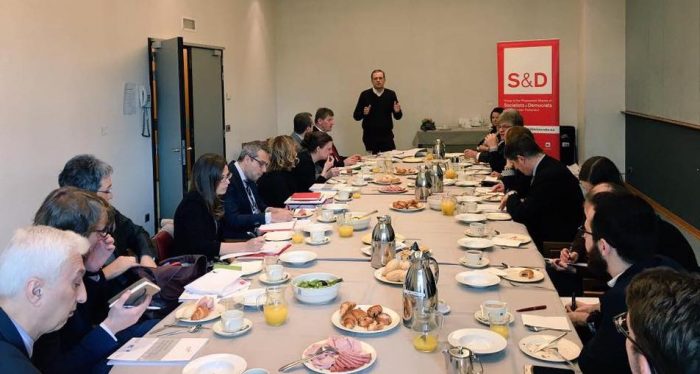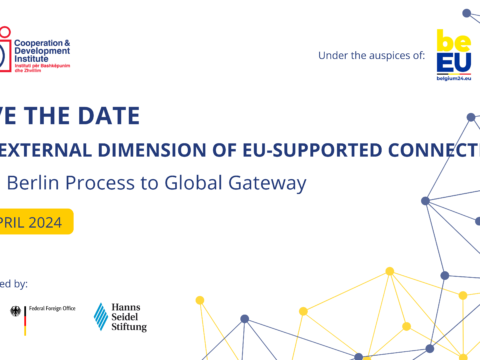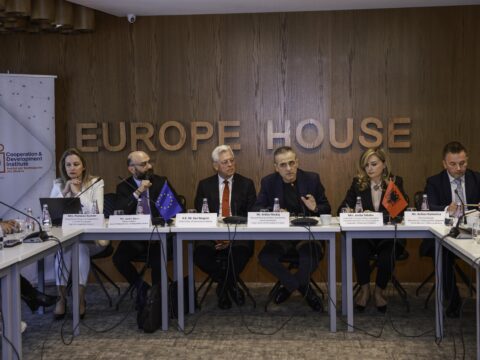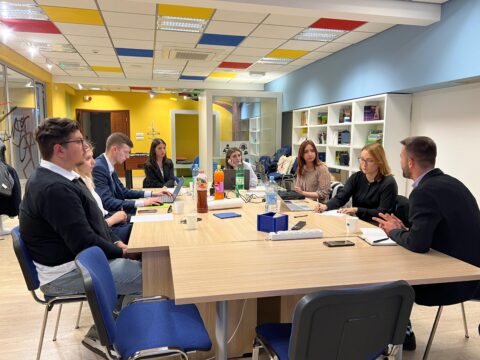On March 22, the Director of ShtetiWeb, Mr. Ardian Hackaj, co-author of the study “Monitoring the Berlin Process: from Paris to Trieste”, presented the results of the study in the European Parliament.
The meeting was hosted by the Euro-Parliamentarians Tanja Fajon and Knut Fleckenstein. Hackaj outlined the importance of the Berlin process (BP) as a complementary process and its support to the enlargement process, which complements the Copenhagen criteria with the concepts of “anchoring” and “connectivity”.
The authors of the study argue that actually the BP has gained strategic importance and contributes by supporting the engagement of reforms in the Balkan countries.
Through the anchoring, the Berlin process allows other actors, beside the Western Balkan countries governments, to be actively involved not just in the implementation of projects and programs, but also during their conception. These actors are identified in the citizens, community and grassroots organizations, businesses, etc. The establishment of the Regional Youth Cooperation Office and the civil society forums in the Western Balkans are success examples.
The Berlin process expands the concept of connectivity beyond its usefulness to increase the efficiency of market functioning. In the Berlin agenda, connectivity serves to unite people, to create security in the continent, and to connect local companies with their European counterparts in the value chain.
The European Parliament (EP) has historically paid great attention to connectivity, surpassing the frameworks of its usefulness regarding the market. Since 1993, the EP has emphasized the need for infrastructure works, which will connect countries and regions of the EU, provide their “European added value”, “long-term employment” and allow the increase of movement and welfare of its citizens. In this context, the EP is in the same line as the Western Balkans civil society towards the Berlin Process and connectivity.
As an indication of this close cooperation between EP – civil society, five MEPs honored with their participation in the event – Victor Boștinaru, Cristian Preda, Franc Bogovič, Dimitris Papadakis, Ulrike Lunacek. The MEPs confirmed their commitment to EU enlargement of the Balkan Countries, and underlined the good and close cooperation with civil society.
This event was also attended by representatives of European Think Tanks, Albania Mission to the EU and DG NEAR.
The study “Monitoring of the Berlin Process: from Paris to Trieste“, authored by A. Hackaj, G. Madhi and K. Hackaj, is published following the annual conference “Albania in the Berlin Process” organized by Cooperation and Development Institute in October 2016. This annual event is held in October and is supported by the three German foundations: Konrad Adenauer Foundations, Friedrich Ebert Foundation






